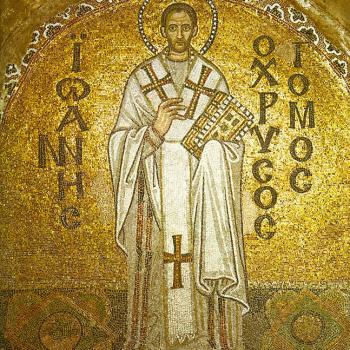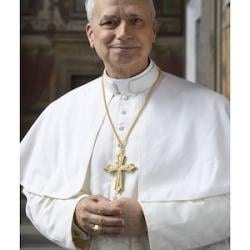"But we are not doing the 'very same things'! We haven't flown any airliners full of civilians into skyscrapers," someone might handily object. But the apostle's point is not that we share the same symptoms of "sin." One alcoholic may prefer cocktails, and another some Tennessee sipping whiskey. One shopping addict may prefer malls, and another the Home Shopping Network. One bigot may prefer white Americans, and another African Hutu. From Paul's perspective, one sinner may prefer lust, another greed, and another gossip. But it is all the same sickness.8 To the degree that I eagerly catalog the sickness in another, says Paul's stinging indictment, to that degree do I condemn and judge myself.9
But even still, it is an undeniable historical fact that people who claim the lordship of Jesus—and to all appearances, claim the lordship of Jesus in a manner that they take quite seriously—have killed or participated in the killing of thousands and thousands of civilians in acts of horrid violence, certainly as horrid and malicious as the acts of September 11, 2001. Al Qaeda, may God have mercy, prefers airliners. They have done dastardly work. But the Pauline counsel would prompt us to remember other dastardly work and frightening words too, to remember that "our people," our Christian brothers and sisters have been caught up in similar dastardly work.
The most casual perusal of a classic work like Roland Bainton's Christian Attitudes toward War and Peace serves as the start of such an exercise: the call to war by Pope Urban II, the start of the Crusade to take Jerusalem from the Muslims, a war that employed "crucifixion, ripping open those who had swallowed coins, mutilation—Bohemond of Antioch sent to the Greek Emperor a whole cargo of noses and thumbs sliced from the Saracens." Regarding the capture of Jerusalem, Raymond of Aguilers recounted:
Some of our men (and this was more merciful) cut off the heads of their enemies; others shot them with arrows, so that they fell from the towers; others tortured them longer by casting them into the flames. Piles of heads, hands, and feet were to be seen in the streets of the city. It was necessary to pick one's way over the bodies of men and horses. But these were small matters compared to what happened at the Temple of Solomon, a place where religious services are ordinarily chanted. What happened there? If I tell the truth, it will exceed your powers of belief. So let it suffice to say this much at least, that in the temple and portico of Solomon, men rode in blood up to their knees and the bridle reins. Indeed, it was a just and splendid judgment of God, that this place should be filled with the blood of the unbelievers, when it had suffered so long from their blasphemies.10
In the later so-called wars of religion—though we will ask whether this is a helpful designation—the Catholics sought to slay the Protestants in great number, and the Protestant Huguenots, for their part, "wore strings of priest's ears, buried Catholics up to their necks, and played nine pins with their heads." In England, "Bloody Mary" got her name, of course, in the attempt to keep the faith of England pure for Rome, while in the next century the Puritans under Cromwell sought a church free not only from papal authority but also from other perceived limitations upon Christian practice. Thus, Cromwell's Crusade, taking time to sing Psalm 68—"Let God arise, Let His enemies be scattered"—would not only execute the king but give no quarter to Catholics, slaughtering 3,352 of "the enemy" in a single massacre at Drogheda.11
In time, of course, other Puritans would make their way westward across the Atlantic, where other such slaughter of indigenous populations would occur, giving rise within a couple of centuries to the greatest amassing of military might ever witnessed in the pages of human history. Though the Western world would seek to separate religion and politics, and killing for religion would become taboo, Westerners would become more and more convinced that their political traditions were the savior of human history, and democracy and democratic institutions the salvation of the world. And that civilization, convinced with a pious fervor as sure of itself as any Crusader ever was, would become the first, and to this point the only, civilization ever to drop an atomic bomb—twice—on civilian population centers, and that after having burned alive tens of thousands of civilians in firebombing campaigns.
Indeed, may God have mercy, for just as the apostle declared, we are all sold under the bondage of sin, all have fallen short of the glory of God, and the wages of such has indeed been the sowing of death and destruction.
© 2011 by Lee C. Camp
Published by Brazos Press. All rights reserved. No part of this publication may be reproduced, stored in a retrieval system, or transmitted in any form or by any means—for example, electronic, photocopy, recording—without the prior written permission of the publisher. The only exception is brief quotations in printed reviews.
For more conversation and resources on Who is my Enemy? visit the Patheos Book Club here.




